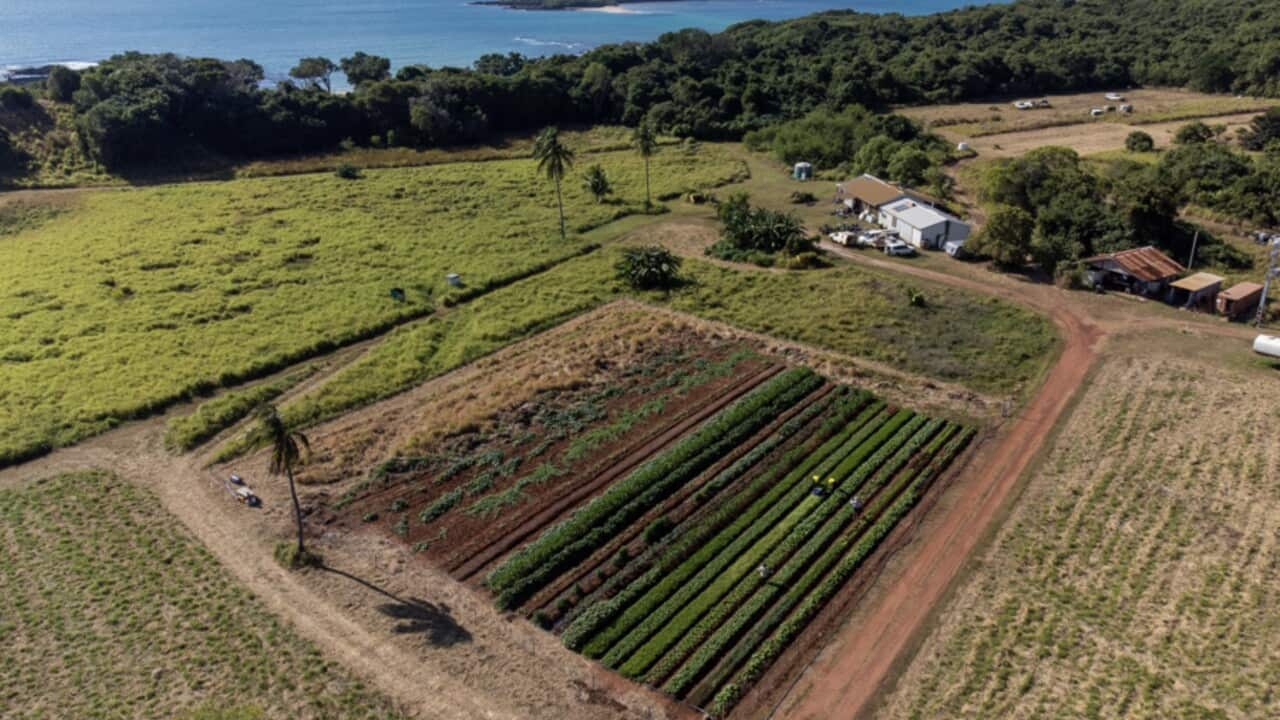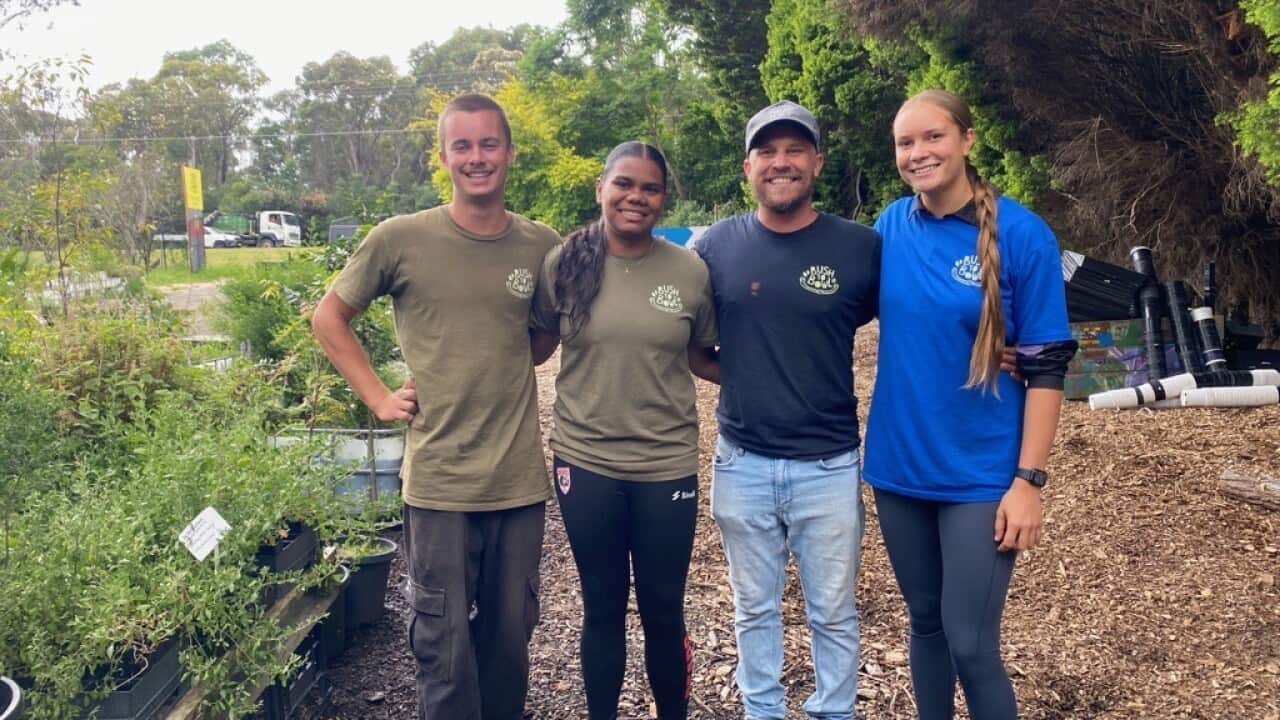In North East Arnhem Land, the term "fresh" fruit and vegetables can be misleading.
The Yolngu community of Yirrkala, on the Northern Territory's Gove Peninsula, has one of the longest supply routes in the world.
Some products are shipped all the way from Adelaide, before taking a final trip over the water.
"Every fruit and veg that used to come into this region, still does come into this region, comes on a barge."
"When you're talking fresh fruit and veg, it's at least seven days old by the time it reaches [Yirrkala]," says Damien Djerrkura, CEO of the North East Arnhem Land Corporation (NEALC).
But a new local venture has brought fresh items right to the community's doorstep, at a fraction of the price.

Leafy vegetables were formerly transported long distances, losing their nutrition and adding to their cost.
"It's going great," Mr Djerrkura told NITV.
"We've got rocket, watermelons, rockmelons. I noticed the other day there's corn and cassava growing as well.
We're trialling different species to see what grows best up here.
The operation is a joint project involving NEALC, Gumatj Corporation, Rirratjingu Aboriginal Corporation (RAC), the Northern Land Council, the NT government, Rio Tinto, Developing East Arnhem Limited and the Palladium Group.
Local stores and restaurants have begun taking orders from the farm, with their fresh produce in high demand.
"I think the community is really supportive of having local produce grown."
"It's great! Very tasty. You kind of forget the taste of freshly grown watermelon, which is nice."

Watermelon is a new local delicacy. Stores and restaurants in the region are stocking up on the farm's produce.
Local Yolngu people are working alongside the specialist agronomist.
"The whole thing about this project is that it's Aboriginal-led, community engagement and getting our local mob involved with a sense of ownership and control.
"Potentially one day they will take over the farm to make it a sustainable business."
Klaus Holmes is the CEO of Gumatj Corporation, a partner in the venture.
He says diversify the area's economic opportunities is vital as they head towards a post-mining future.
"If you lose Woolworths out of the town, you go to a much, much smaller store, in which case all the prices are going to rocket.
"And the things that last [the least] are vegetables, and they're the most costly to move and keep.
"So by ... growing here, we would probably get a reasonably chance of having someone other than Woolworths."
While the farm is currently unable to support itself financially, Mr Djerrkura says there are hopes that a model can be developed to sustain the practice into the future.
"We're in a trial phase. The next phase ... will explore what funding is out there to expand the farm as it is."












